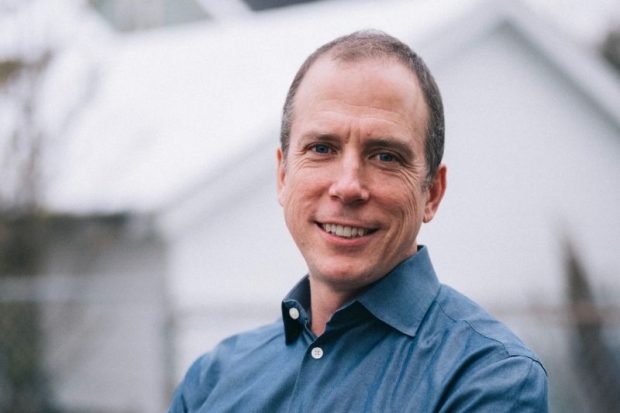- Resources
- LGIM America and EDF: A new kind of climate partnership
Resources
LGIM America and EDF: A new kind of climate partnership
Published: August 11, 2022 by EDF Staff

Investment Stewardship Analyst LGIMA
By Neaaz Mozumder, Investment Stewardship Analyst, LGIM America and Andrew Howell, Director of Sustainable Finance, Environmental Defense Fund
A year ago, LGIM America (LGIMA) and Environmental Defense Fund (EDF) announced a partnership to help “turbocharge investor leadership on climate change” and reduce emissions across high-emitting industries. Our shared plan focused on encouraging business leaders to advocate for key policies, helping companies move from planning to implementation, and addressing the growing demand for ESG-aligned investment options.
A year in, LGIMA’s Neaaz Mozumder and EDF’s Andrew Howell share their successes, what they’ve learned, and what’s next for the partnership.

Director of Sustainable Finance EDF
Q: This kind of close collaboration between an investment firm and an environmental NGO is unusual. What was the rationale for setting it up?
Neaaz: As an investor, our core goal is to help protect our clients’ assets and aim to generate long-term value. Addressing the risks posed by the climate transition is one way we achieve that, which also aligns with some of what EDF works on. For us, this partnership offers three main value propositions: perspective, influence and expertise. EDF’s reputation as a thoughtful and pragmatic NGO is well earned, and we’ve benefited from the additional perspective on specific climate issues, their input and guidance on stewardship campaigns and focused technical expertise.
Andrew: EDF has a history of working closely with influential companies to help them be better environmental and climate stewards – our partners have included Walmart, McDonalds, and Carrier. Given the critical role of the financial sector in addressing climate change, LGIMA is a logical partner for us as well. LGIMA has the scale and global scope to be impactful and has taken steps to use its voice to lead on sustainability and climate.
Q: What accomplishments from this first year of the partnership would you highlight?
Neaaz: One topic has been central to much of our work with EDF: methane. Thanks in part to EDF’s efforts, it is clear that reducing methane emissions can be a powerful and cost-effective way for oil & gas companies to make progress towards climate goals and manage regulatory and reputational scrutiny. Soon after the partnership kicked off last year, the Investment Stewardship team at LGIMA met with EDF to better understand the methane problem. EDF shared their research with us and other LGIMA teams. We also met with global oil and gas companies and marketplace data providers.
As we looked more deeply into the issue, we came to an alarming realization: despite the importance of methane to climate, the oil and gas industry is not on top of the issue. For starters, most companies don’t even know how much methane they are emitting. That means regulators don’t have good data on methane either, while investment data providers have little to say about it. It is clear that methane measurement and disclosure need to improve.
In consultation with EDF, we developed a methane strategy for our oil and gas portfolio companies. Fortunately, there is a robust framework for improving methane emissions disclosure called the Oil & Gas Methane Partnership. We met with several large oil and gas companies urging them to join the Partnership, and with the Environmental Protection Agency (EPA) to highlight shortcomings of existing disclosure regulations. We also submitted a comment letter to the International Sustainability Standards Board, urging adoption of key OGMP features. If implemented, it could have a sweeping impact on system wide disclosure practices.
Andrew: We believe LGIMA’s actions on methane will lead to real-world emissions reductions. When investors engage with oil and gas companies, it sends a clear message to management teams that this is an issue that matters. It was also helpful that they met with the EPA – regulators need to hear the perspective of the investor community. LGIMA spoke out publicly on this issue as well by joining a webinar we hosted to share their perspective and publishing an op-ed in Barron’s. All these are welcome steps from the finance community.
Q: How has this partnership shaped how LGIMA approaches climate engagement?
Neaaz: The energy transition is a complex topic and can get technical very quickly. Investment firms, like LGIMA, do not necessarily have all of the scientific expertise to guide us through the nuances of each issue. This is why we’ve found it’s critical to engage with experts who can help us dig deeply into the challenges and solutions. EDF and other partners help us get smarter when engaging with companies.
Q: What has EDF learned from this partnership?
Andrew: The culture and perspective of an environmental NGO can be very different from that of an investor like LGIMA. One thing we learned is the importance of prioritization and how to narrowly focus on a small number of critical issues where investors can have the most impact. We also learned that much of the time, climate and maximizing shareholder value are more aligned than you might think. Methane is a great example. If you capture it rather than allow it to leak into the atmosphere, methane can have a monetary value that contributes to the bottom line.
Q: What issues or industries will the two organizations focus together on next?
Neaaz: Any sector that is carbon intensive may be susceptible to some form of risk, and where we can provide value as an investor is fair game. It’s not unlike the framework we apply to other issues in the Investment Stewardship group.
Andrew: Transportation is one area that EDF is starting to work more closely with investors on recently, as it represents more than 20 percent of global emissions. It has broad relevance because nearly every company uses trucks, airplanes, or other transportation modes to move goods and people. And yet, far too few companies disclose their transportation-related emissions or have committed to reducing them. Working with LGIMA to raise the urgency of this issue with their portfolio companies can benefit all those involved – there is no time to waste.

